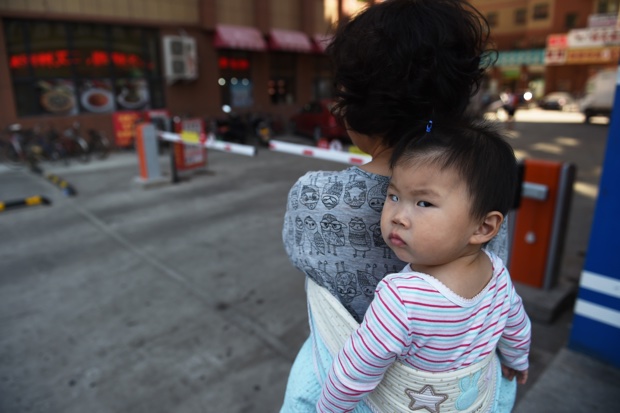So, China’s Communist Party has radically modified its one-child policy in favour of a one-or-two-child policy. For most politically minded Brits, it was a useful reminder that the policy actually existed. It has, says the Communist party with characteristic opacity, prevented about 400 million births in the decades since its introduction in 1979. Some 330 million of those births were prevented by abortion. It may be that I somehow missed all the moral outrage over here at this flagrant violation of human rights from feminists and human rights organisations in those three decades. Or possibly there wasn’t much.
Maybe there were any number of women’s groups picketing the Chinese embassy about the policy on a 24-hour basis and I just never got to hear about it. There were obviously grounds for them to do so; not only were abortions routinely forced on reluctant couples by state family planning officials, the resulting, inevitable incidence of sex-selective abortions has resulted in 20 million missing girls – or is it 30 million; hard to tell – in the Chinese population now. Tough on the foetuses, tough on the surviving bachelors, the males who did get to be born.
All I can say is that the one person I do know who raised the issue when it wasn’t fashionable was the independent peer, David Alton, who, a couple of years ago, invited the blind Chinese human rights activist, Chen Guangcheng, to address a group in parliament on this and related abuses (Lord Alton is a proper pro-lifer; he’s engaged with post-natal as well as pre-natal human rights). It was one of the most moving events I’d ever been to: Guangcheng’s blindness, allied to his extraordinary clarity of moral vision, made all the cases he talked about seem, well, as pertinent as they would be if they’d happened to white Europeans. The sheer numbers involved in this human experiment often mean we lose sight of the pain it exacted on individuals.
One of the appalling things about the policy was that it was preceded in Mao’s time by precisely the opposite policy, viz, an insistence by the state that the patriotic approach to reproduction was to have as many children as possible. Mind you, this may have been offset by Mao’s other policies which resulted in the deaths of tens of millions of Chinese by dint of mass starvation, but it was all incidental to the Great Leap Forward.
The other grim aspect of it was that it was more immediately preceded from 1971 by what we’d probably regard as a reasonable, if a tad prescriptive, approach by the state to family planning, whereby the government conducted a campaign to exhort couples to have smaller families and to space out their children. And it worked. The population did increase but all the indications were that families were taking the campaign to heart. So, this gruesome policy was not just cruel but unnecessary.
What struck me personally though was that you’d get, in private conversations, academics with an interest in the environment and population, who would frankly admit that although the policy was no doubt unfortunate, it was necessary for its global environmental benefits. One was a then head of a Cambridge college. It was a useful reminder that academic intelligence is no guarantee of moral groundedness.
You may of course consider that other countries’ conduct with regards to their own citizens is their affair. Fine, except that there are some issues we plainly do feel free to get terrifically worked up about – apartheid being one example – even though they had no bearing on Britain. For myself, I have easily encountered about a 100 times more moral indignation about the situation of homosexuals in Russia in the last two years than about the Chinese one-child policy. Alas, there are only so many causes Elton John can invest in.







Comments